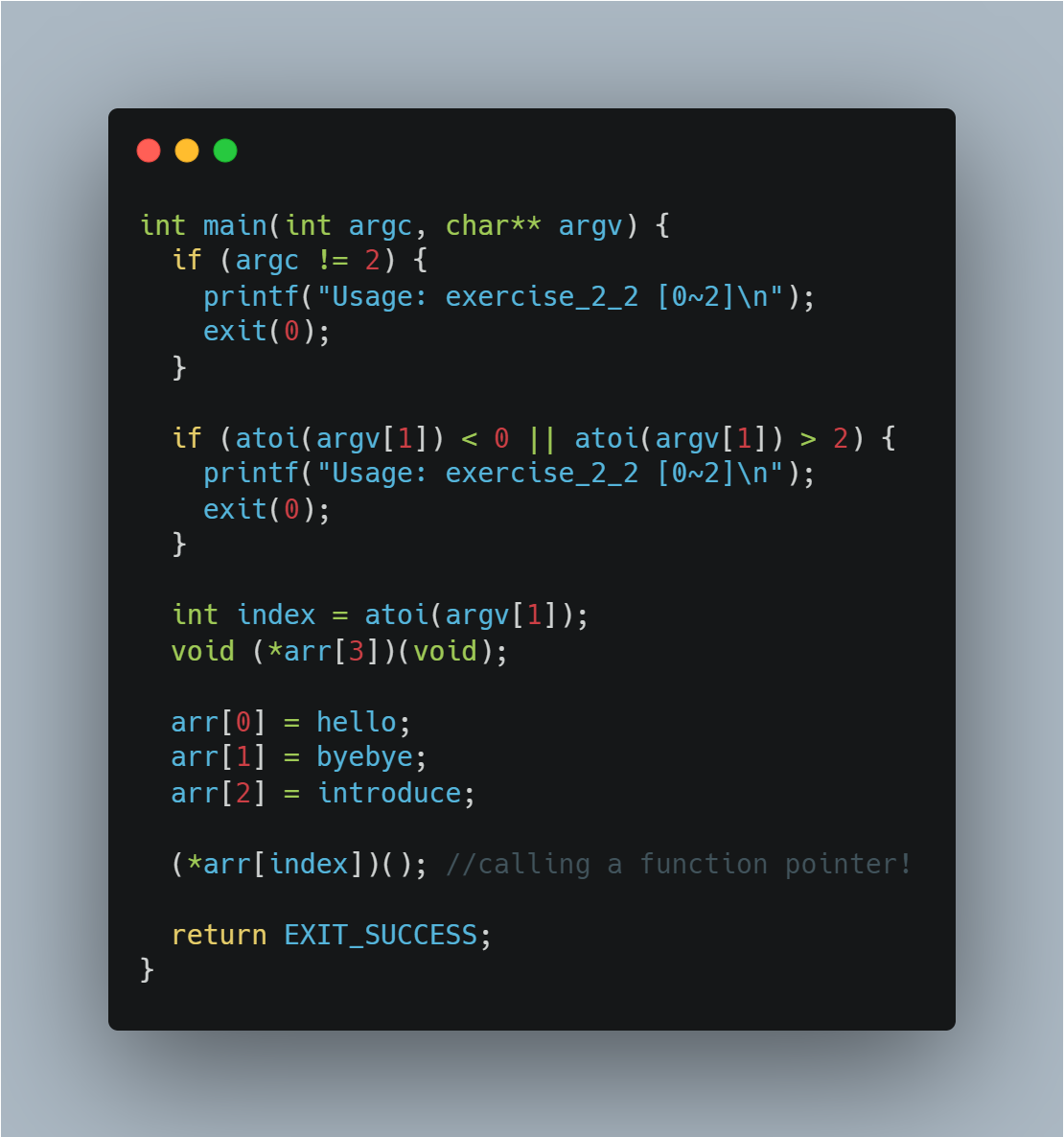Chapter 2: Objects, Functions, Types
1. Objects, Functions, Types, and Pointers
- An object is a storage in which you can represent values. More specifically speaking, it is a "region of data storage in the execution environment, and the contents of which can represent values." An object can be interpreted as having a particular type. A variable is an object.
- A variable has a declared type that interprets the value of the object. The type is important as the collection of bits can be interpreted differently based on its type.
- i.e. 1 in float (IEEE754) is 0x3f800000, but if this bit pattern is interpreted as an int, it is now a different number (1,065,353,216). - A function is not an object, but it does have types. Its type is characterized by both its return type and its parameter types.
2. Declaring Variables
- When we are declaring variables, we assign it a type and provide a name (identifier), by which to reference a value.
- i.e.
int aVariable = 5;
3. Declaring multiple variables (in a single line)
- We can declare multiple variables in a single declaration(line), but it may be very confusing if the variables' types are pointers or arrays.
//one is type char* (src), and another is type char (c)
char *src, c;
//one is type int (x), one is type int[5], and one is type int[4][3] (y)
int x, y[5], z[4][3];Exercise 2.2 (함수 포인터)
- 함수 포인터 배열을 정의 후 함수 포인터 배열에서 함수 호출하기
- 함수 포인터는 다음과 같이 정의된다.
//함수형 (포인터명) (함수 파라미터)
//예시:
void hello(void); //함수 프로토타입
void (*helloFuncPtr)(void); //함수 포인터
int add (int, int);
int (*addFuncPtr)(int, int);솔루션 code snippet. 코드 완성본은 github 참조해주세요!
